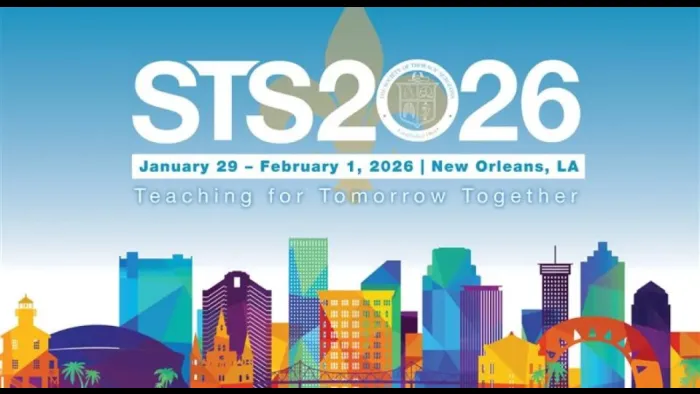More than 300 attendees from around the world gathered in Seoul, Korea, on September 12–13 for the 2025 Heart Valve Disease Forum (HVDF), which was co-hosted by The Society of Thoracic Surgeons and the Korean Society for Thoracic and Cardiovascular Surgery (KTCVS). This year’s forum, centered on the theme “The Wonderland of the Tricuspid Valve: Unraveling Its Secrets,” offered an in-depth exploration of tricuspid valve disease, from anatomical foundations to advanced treatment strategies.
The immersive, two-day event featured leading faculty from around the world and provided a multidisciplinary platform to examine the latest trends in diagnosis, surgical innovation, and clinical management of tricuspid valve pathology.
“This year’s HVDF covered the latest insights into the anatomic and physiologic basics, causes, diagnosis, treatment, and future of valve diseases, featuring scholars from various fields,” said HVDF President Kyung Hwan Kim, MD, PhD. “We facilitated discussion among experts, covering everything from foundational concepts to the latest trends in tricuspid valve research, including emerging surgical and treatment methods.”
Expert-Led Training and Hands-On Education
The program featured a comprehensive series of sessions, including mentorship programs, abstract presentations, poster sessions, and scientific debates, designed to foster both technical skill development and collaborative exchange. Hands-on wet labs allowed participants to practice complex procedures under expert guidance, while breakout discussions provided tailored instruction on topics such as tricuspid valve repair and the management of regurgitation in patients with atrial fibrillation.
“This year, we highlighted a particularly relevant topic: managing tricuspid valve disease in the setting of atrial fibrillation,” said Christopher Malaisrie, MD, of Northwestern Medicine. “The conference reflected growing global interest in the valve’s complexity and clinical significance.”
Advancing the International Dialogue on Valve Disease
By combining practical skill-building with high-level academic dialogue, the HVDF continues to raise the bar for heart valve education. The English-language conference emphasized the importance of cross-cultural collaboration in tackling complex cardiothoracic challenges and provided a space for participants to engage directly with international experts.
With its emphasis on personalized mentorship, state-of-the-art content, and a focus on clinical translation, the 2025 HVDF reinforced its position as a premier global platform for advancing the science and practice of heart valve disease treatment.
